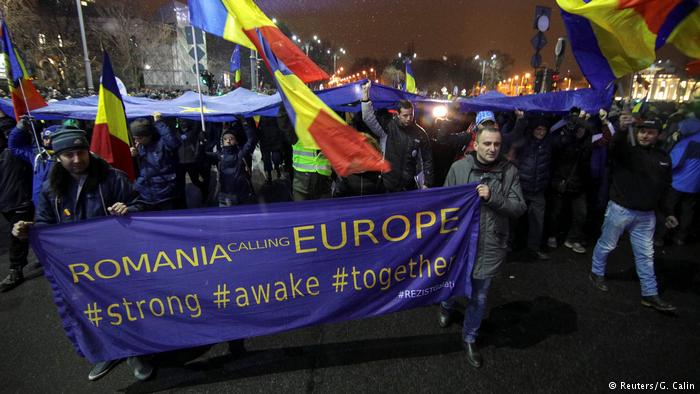Reuters (21 February 2019)
Bosnia’s hundreds of loss-making state-owned companies, accounting for about a fifth of the economy, should restructure or be privatised to become sustainable, said an IMF official presenting the first comprehensive overview of the sector.
Bosnia signed a 553 million euro ($627 million) loan deal with the IMF in 2016 but it was frozen last year over a lack of economic reforms, and the recommendations from the IMF’s technical analysis of state-owned companies could be included in any reform programme if the loan is to be unfrozen.
The IMF’s reform agenda is also important because it is in line with requirements of the European Union to speed up Bosnia’s integration into the bloc.
Yet any shakeup of state companies would likely be controversial, given they account, along with government jobs, for 27 percent of total employment in Bosnia, and the small number which are profitable are used by ruling political parties as cash cows and workplaces for loyal cadres.
The companies have remained in government ownership since the first wave of privatisation was only partly completed after the Bosnian war ended in 1995.
“Government investments in these companies are yielding negative returns, the sector is highly indebted, and many companies have liquidity problems,” Francisco Parodi, the IMF Resident Representative in Bosnia, told Reuters.
“The authorities have many options, from closing companies, restructuring and privatisation,” Parodi said.
Some 548 companies remain majority owned by government and the IMF’s analysis showed their total debt exceeding revenues and accounting for 28 percent of total assets, put at 30.9 billion marka ($18 billion).
In a country divided along ethnic lines, there is no central register of such firms, few issue regular financial statements and their ownership structure is often opaque.
“The governments need to be better owners of their firms, to know what they own, to have good policy reasons to owning them and to appoint managers based on professional credentials and not party affiliation,” said Parodi, the analysis’ author.
Only five of the 20 top state companies are categorised as “sound” or “low risk”. Two of them, BH Telecom and power utility Elektroprivreda BiH (EPBH), accounted for 90 percent of the 80.7 million marka total dividends paid in the sector in 2017, according to the report.
Parodi recommended that Bosnia’s two regions, the Bosniak-Croat Federation and the Serb Republic, should create registries of such firms and decide on their future ownership, taking into account their performance and policy relevance.
https://www.reuters.com/article/bosnia-companies-imf/bosnia-needs-to-restructure-and-privatise-state-firms-imf-finds-idUSL5N20G6V5
No comments yet.
-
 ROMANIA: PROTESTS AGAINST JUDICIAL CHANGES
The Balkans
25.02.2019
ROMANIA: PROTESTS AGAINST JUDICIAL CHANGES
The Balkans
25.02.2019
- EXHIBITION REMEMBERING KHOJALY GENOCIDE BEING HELD IN TEHRAN The Caucasus and Turkish-Armenian Relations 25.02.2019
- JAPAN AMBASSADOR: ARMENIA HAS TRULY UNIQUE POSITON IN THE WORLD TRADE SYSTEM The Caucasus and Turkish-Armenian Relations 25.02.2019
- GEORGIAN DEFENSE MINISTER MEETS ARMENIAN LEADERS IN YEREVAN The Caucasus and Turkish-Armenian Relations 25.02.2019
- ISIS RESORTS TO STOKING SECTARIANISM IN IRAQ Iraq 25.02.2019
-
19.04.2024
Türk-Ermeni İlişkileri Üzerine Ömer Engin Lütem Konferansları 2023 -
11.04.2023
Türk-Ermeni İlişkileri Üzerine Ömer Engin Lütem Konferansları 2022 -
27.03.2023
RADİKAL ERMENİ UNSURLARCA GERÇEKLEŞTİRİLEN MEZALİMLER VE VANDALİZM -
17.03.2023
PATRIOTISM PERVERTED -
23.02.2023
MEN ARE LIKE THAT -
03.02.2023
BAKÜ-TİFLİS-CEYHAN BORU HATTININ YAŞANAN TARİHİ -
16.12.2022
INTERNATIONAL SCHOLARS ON THE EVENTS OF 1915 -
07.12.2022
FAKE PHOTOS AND THE ARMENIAN PROPAGANDA -
07.12.2022
ERMENİ PROPAGANDASI VE SAHTE RESİMLER -
30.03.2022
Türk-Ermeni İlişkileri Üzerine Ömer Engin Lütem Konferansları 2021 -
01.01.2022
A Letter From Japan - Strategically Mum: The Silence of the Armenians -
01.01.2022
Japonya'dan Bir Mektup - Stratejik Suskunluk: Ermenilerin Sessizliği -
11.02.2021
Türk-Ermeni Uyuşmazlığı Üzerine Ömer Engin Lütem Konferansları 2020 -
03.06.2020
Anastas Mikoyan: Confessions of an Armenian Bolshevik -
08.04.2020
Sovyet Sonrası Ukrayna’da Devlet, Toplum ve Siyaset - Değişen Dinamikler, Dönüşen Kimlikler -
18.03.2020
Türk-Ermeni Uyuşmazlığı Üzerine Ömer Engin Lütem Konferansları 2019 -
08.03.2019
Türk-Ermeni Uyuşmazlığı Üzerine Ömer Engin Lütem Konferansları 2018 -
12.06.2018
Ermeni Sorunuyla İlgili İngiliz Belgeleri (1912-1923) - British Documents on Armenian Question (1912-1923) -
02.12.2016
Turkish-Russian Academics: A Historical Study on the Caucasus -
01.07.2016
Gürcistan'daki Müslüman Topluluklar: Azınlık Hakları, Kimlik, Siyaset -
10.03.2016
Armenian Diaspora: Diaspora, State and the Imagination of the Republic of Armenia -
24.01.2016
Ermeni Sorunu Temel Bilgi ve Belgeler (2. Baskı)
-
AVİM Conference Hall 24.01.2023
CONFERENCE TITLED “HUNGARY’S PERSPECTIVES ON THE TURKIC WORLD"









